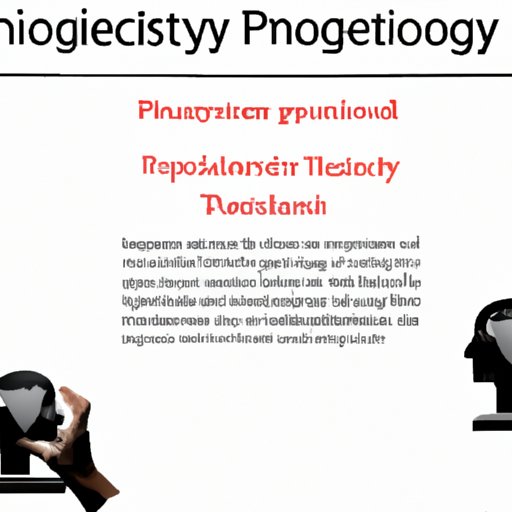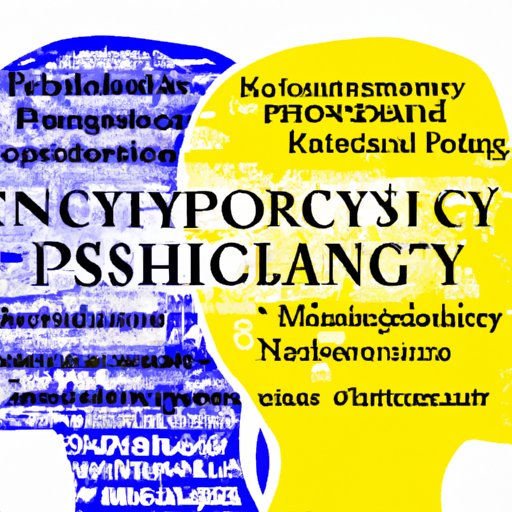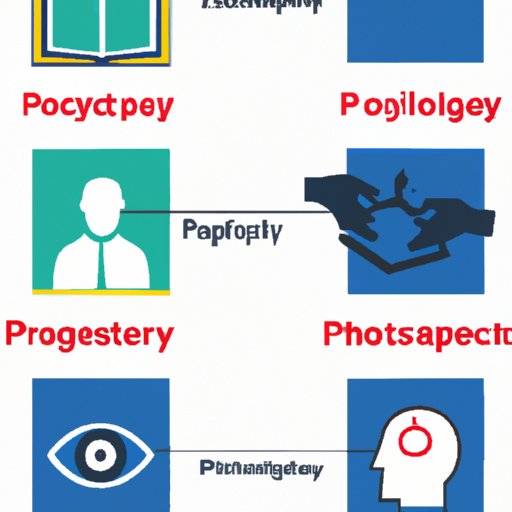Introduction
Psychology is an academic and applied discipline that involves the scientific study of mental processes and behavior. It seeks to understand individuals and groups by establishing general principles and researching specific cases. By understanding the underlying processes of thought, emotions, and behaviors, psychologists are able to help people overcome challenges, improve their lives, and increase their overall well-being. But is psychology truly a science? This article will explore the scientific nature of psychology and its various theories, principles, research methods, and applications to answer this question.

Analyzing the Scientific Nature of Psychology and its Research Methods
At its core, psychology is a science because it relies on empirical evidence and data to form conclusions. In order to do so, psychologists use a variety of research methods including surveys, experiments, observations, and interviews. Each of these methods is used to collect data which can then be analyzed to test theories and draw conclusions. For example, a survey might be used to measure public opinion on a certain issue while an experiment might be used to test the effects of a particular drug on behavior. By using these research methods, psychologists are able to collect and analyze data in order to draw valid conclusions about the topics they study.
In addition to data collection and analysis, it’s also important for psychologists to assess the validity and reliability of their research. Validity refers to whether or not the results of a study accurately reflect what they were intended to measure, while reliability refers to whether or not the results of a study can be replicated in different settings with different participants. To ensure the validity and reliability of research, psychologists must carefully design their studies and use proper controls to account for any potential bias or confounding variables.

Examining the Theories and Principles of Psychological Science
Theories are the foundation of psychological science. They are used to explain and predict behavior by providing a framework for understanding the underlying processes at work. Some of the most widely accepted theories in psychology include Sigmund Freud’s psychodynamic theory, Abraham Maslow’s hierarchy of needs, B.F. Skinner’s operant conditioning theory, and Albert Bandura’s social learning theory. Each of these theories provides a unique insight into human behavior and has been tested and supported through research.
In addition to theories, there are also a number of principles that are used in psychological science. These principles provide guidance for researchers and practitioners in their work and help to explain phenomena such as memory, motivation, and perception. Some of the most commonly cited principles include the law of effect, classical conditioning, and the gestalt principle. By understanding these principles, psychologists are better able to understand how different factors influence behavior and make more informed decisions when working with clients.
Exploring the Application of Psychology in Solving Real-World Problems
Psychology is not just a theoretical field; it has many practical applications that can be used to solve real-world problems. For example, psychologists can use their knowledge of behavior and cognition to develop effective strategies for improving education, reducing crime, and promoting health and wellbeing. Additionally, psychologists can use their understanding of emotions and relationships to help couples and families resolve conflicts and build stronger connections. By using their expertise to address real-world issues, psychologists are helping to make the world a better place.
One example of how psychology has been successfully applied to solve real-world problems is the work of Dr. Albert Ellis. Dr. Ellis developed a form of cognitive-behavioral therapy (CBT) that has been used to treat a variety of mental health issues. CBT has been found to be highly effective in treating depression, anxiety, and other disorders, and has helped countless people lead happier, healthier lives.

Evaluating the Impact of Psychology on Society
The impact of psychology on society is both positive and negative. On the one hand, psychological research has led to the development of treatments for mental illnesses, improved educational practices, and increased awareness of social issues. On the other hand, some believe that psychology can be used to manipulate and control individuals, leading to ethical concerns. Ultimately, it is up to psychologists to use their knowledge responsibly and act in the best interests of those they serve.
Investigating the Role of Psychology in Understanding Human Behavior
Psychology plays an important role in understanding human behavior. By studying the underlying processes of thought, emotion, and behavior, psychologists are able to develop theories and models that can be used to explain and predict behavior. Additionally, psychologists use their understanding of human behavior to develop interventions and treatments that can help people overcome psychological difficulties and lead more fulfilling lives.
There are a variety of approaches to understanding human behavior, each of which has its own unique perspective. For example, psychodynamic theorists focus on unconscious drives and motivations, while behaviorists focus on observable behavior. Cognitive psychologists emphasize the role of thoughts and beliefs in behavior, while evolutionary psychologists look to biology and genetics. Each of these perspectives offers valuable insights into the complexities of human behavior.
Conclusion
This article has explored why psychology is considered a science. It has examined the various theories, principles, research methods, and applications of psychology to gain a better understanding of why it is seen as a science. Through its empirical evidence and data collection, rigorous research methods, and thoughtful application of theories and principles, psychology has proven itself to be a legitimate science that can be used to understand and improve the human condition.
(Note: Is this article not meeting your expectations? Do you have knowledge or insights to share? Unlock new opportunities and expand your reach by joining our authors team. Click Registration to join us and share your expertise with our readers.)
